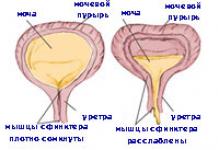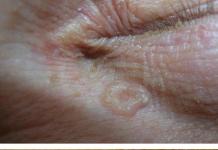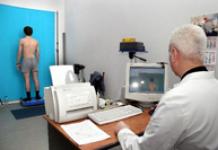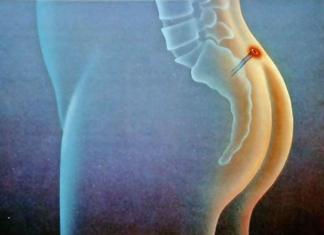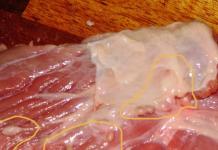Sore throat is an insidious and merciless disease that occupies a leading place in the sad statistics of infectious diseases. It manifests itself in different forms and brings very unpleasant sensations.
An absolutely healthy person with a sore throat will “lose his feet” literally in a matter of hours, and complications after a sore throat can make themselves felt throughout his life!
What you need to know about sore throat
Angina - infection, a typical symptom of which is inflammatory damage to the palatine tonsils. Complications after tonsillitis in adults and children are fraught with serious consequences. The onset of a sore throat is accompanied by severe pain in the throat.
Content:
It does not allow a person to swallow normally, as a result of which the patient’s appetite decreases. Then the body temperature rises significantly, weakness and general intoxication of the body sets in.
But sore throat itself is not so terrible if it is diagnosed in time and treated. The consequences of untreated sore throat can be very serious. Complications after a sore throat are especially dangerous in children with weakened immune systems. They may appear after an apparent complete recovery.
Sometimes a sore throat occurs in mild form and people, especially those who work, strive not to disrupt their usual way of life and endure it “on their feet.” Probably, not a single person would do this if he knew what complications could arise after a sore throat!
This is damage to nearby organs, kidneys and liver, chronic tonsillitis, rheumatism, heart disease, etc. That's why it's so important to stay in bed and follow your doctor's recommendations when you have a sore throat.
At the initial stage, rinses, inhalations and others can be used to relieve pain in the throat, inflammation and swelling. folk remedies, but they are not 100% effective. The pathogen can be completely destroyed only with the help of antibiotics.

Heart complications after tonsillitis
Often after a sore throat, serious diseases such as rheumatism and heart disease occur. In the fight against bacterial infection and during the recovery process, antibodies are released, which sometimes begin to “work” against their own body, suppressing the proteins that form connective tissue.
Rheumatism of the heart is precisely characterized by disorganization of the connective tissue in this area and the formation of rheumatic nodules, which subsequently heal. As a result, the functioning of the heart valves is disrupted and, as a result, heart disease occurs.
In addition to rheumatism, a complication of the heart after a sore throat, such as myocarditis, may occur. This is an inflammatory process that leads to damage to the heart muscle. This disease is manifested by rapid heartbeat, arrhythmia, heart pain, swelling of the neck veins, swelling of the legs, shortness of breath and cyanosis.
These complications can arise 2-3 weeks after the symptoms of a sore throat have disappeared, so it is necessary to emphasize once again that the key to a quick recovery and reducing the risk of serious illnesses after a sore throat is competent treatment and strict adherence to bed rest.
The dangers of sore throat for joints
 Rheumatism is a connective tissue disease. Both heart valves and joints are made of it, so complications after a sore throat on the joints and heart are of the same nature.
Rheumatism is a connective tissue disease. Both heart valves and joints are made of it, so complications after a sore throat on the joints and heart are of the same nature.
Doctors have a saying about this: “rheumatism licks the joints and bites the heart.” With untreated sore throat, beta-hemolytic streptococci penetrate into the blood and then into various body systems, provoking the occurrence of rheumatism.
Rheumatism of the heart was discussed above. As for the joints, their disease is characterized by acute wandering pain, swelling, swelling and redness, especially in the large joints of the legs and arms, high temperature and fever.
Doctors are familiar with wave-like joint damage, in which some joints become inflamed, then the symptoms go away, and then inflammation of other joints begins. Such diseases are treated with medications in combination with physical therapy.
Consequences of the disease for the legs
When they talk about complications on the legs after a sore throat, they mean the same inflammation of the joints, or rheumatism. Streptococcal infection is an insidious enemy of the human body. It is often very difficult to associate a sore throat with pain and swelling in the legs.
However, this disease can also cause such complications, and this should be kept in mind when consulting a doctor about pain in the knees, ankles, as well as elbows or other joints.
Harmful effects of sore throat on the kidneys
Other dangerous complications that may arise after a sore throat include pyelonephritis and glomerulonephritis.
 Pyelonephritis is an inflammatory disease of the kidneys, which can progress to a chronic stage. In purulent-destructive pyelonephritis, the kidney undergoes purulent melting and is an organ consisting of cavities filled with urine, pus and tissue decay products.
Pyelonephritis is an inflammatory disease of the kidneys, which can progress to a chronic stage. In purulent-destructive pyelonephritis, the kidney undergoes purulent melting and is an organ consisting of cavities filled with urine, pus and tissue decay products.
Such a complication of the kidneys after a sore throat, such as glomerulonephritis, is a dangerous bilateral damage to the kidneys, or more precisely, to the renal glomeruli (glomeruli).
Chronic glomerulonephritis leads to kidney failure. As a result, the patient may require hemodialysis and kidney transplantation. Both of the above diseases are manifested by fever, severe fever and chills, and pain in the lumbar region.
Complication after a sore throat on the ears and other nearby organs
The infection that causes a sore throat can penetrate the maxillary sinuses and cause sinusitis or sinusitis. Sometimes complications arise after a sore throat in the ears, which are expressed in the accumulation of pus in the middle ear. This disease is called otitis media. In addition, the inner ear is subject to inflammation. This disease is called labyrinthitis.

Swelling of the larynx may also occur. The cervical and submandibular areas may become inflamed. The lymph nodes, thyroid, as well as the meninges, and then there is dangerous disease– meningitis.
Literally 2-3 days after stopping antibiotics, a disease called paratonsillitis, or phlegmonous tonsillitis, may occur due to the resolution of tonsillitis symptoms. At the same time, the body temperature rises again, sometimes reaching 40°C. My throat hurts again, but now all the time, and not just when swallowing.
The lymph nodes become inflamed and very painful, profuse salivation appears, speech becomes unclear and slurred. An abscess forms in the throat, so when you try to turn your neck, severe pain occurs.
As a result of severe intoxication, the body weakens; a person cannot eat or fall asleep normally. This condition can lead to loss of consciousness. This complication is treated exclusively with potent antibiotics.
What can be the consequences of the disease in children?
In young children, after a sore throat, a dangerous retropharyngeal abscess may appear, which is characterized by the development of an abscess in the area of the spine and the back of the pharynx. Lymph nodes are located in this area in children.

The body is designed in such a way that by the age of 5-6 years these lymph nodes disappear, so complications of this kind after a sore throat do not arise in adults. And for children, this disease is dangerous due to impaired respiratory function, which can result in suffocation.
To prevent such an outcome, they resort to surgical intervention - a purulent abscess in the larynx is opened during surgery.
How to avoid complications after illness?
Any complications after a sore throat can appear 2-3 weeks after a seemingly complete recovery, and sometimes earlier. What should be done to avoid these complications or minimize the risk of their occurrence?
- First, do not stop gargling after the pain subsides. The infection must be washed out from the affected tonsils so that it cannot spread through the blood to other organs.
- Secondly, it is necessary to approach the treatment process very seriously: observe bed rest and all doctor’s recommendations, take antibiotics and other medications prescribed by a specialist on time. It is very important to take the tablets for the required number of days, since antibiotics are usually prescribed in a course.
- Thirdly, after recovery, try not to catch a cold or get an infection again: do not walk in wet weather, do not drink cold water and don't eat large portions of ice cream.
Treat your health with due attention, and in difficult times it will not let you down!
In fact, there is nothing terrible or dangerous about having a sore throat if it is diagnosed in time and treated correctly. However, do not underestimate the consequences that this disease leaves behind. And first of all, the human heart suffers from complications caused by a sore throat.
It so happened that the pathological anatomy of the structure of the blood supply system of the human body is such that bacteria, causing diseases tonsillitis, are transported through the bloodstream to the heart muscle. First, they form an inflammatory focus there, which can be complicated by rheumatic myocarditis, and it can manifest itself only a few months after the onset of the disease, and in the future there is a danger that such lesions will develop into rheumatic heart disease. Typically, patients with such a diagnosis must have information about their sore throat in their medical records.
If you suffered from a sore throat a few weeks ago, and now you feel that you are starting to get tired quickly, discomfort is increasingly appearing in the heart area and there is general weakness of the body, consult a doctor immediately! The consequences of rheumatic myocarditis can be dire and irreversible for health, but diagnosing it early stage is a big step on the path to success.
However, myocarditis cannot appear out of nowhere. Often its cause is a sore throat that is not detected and treated in time, or is treated incorrectly. AND medical practice has proven more than once: rheumatic heart disease, which is a consequence of a sore throat, can be cured without surgery! Therefore, it is very important to know exactly the timing when a patient with such a diagnosis suffered from tonsillitis, and the treatment regimen he was taking. In cases where myocarditis is provoked by insufficient antibacterial procedures, they must be resumed as quickly as possible - this will help stop the development of the disease.
It is important to remember that untreated or incompletely treated rheumatic heart defects in almost one hundred percent of cases lead to disability. Under no circumstances should you suffer a sore throat on your feet! Bed rest, drinking plenty of fluids, antibiotics selected by a competent doctor, local antibacterial therapy, and most importantly, carrying out all these measures in a complex and on time is a decisive factor that can prevent serious disturbances in the functioning of the heart.
However, the heart is not the only vulnerable place in case of tonsillitis. The human body is designed in such a way that everything in it is interconnected. If there are violations in one thing, they need to be eliminated as quickly as possible, otherwise they will manifest themselves in other systems of our body. It would seem that everyone knows everything about angina, but still the percentage of those who do not go to the hospital with this disease and try to solve the problem on their own is becoming larger and larger. Meanwhile, the consequences of a sore throat, in fact, do not depend on its type, the severity of the disease, or its duration. And if they appear, they affect a person’s kidneys, his liver, affect joints, and there is also a danger of otitis media, enlarged lymph nodes and sometimes even blood poisoning.
No one can say with certainty what exactly the consequences will be for a particular patient with a sore throat. For all the time of research devoted to this disease, it has not been possible to draw parallels between the type of sore throat, the severity of its course and future complications. In the practice of every doctor, there have been cases when severe lacunar tonsillitis is cured completely and without consequences, and elementary catarrhal disease becomes the cause of serious illnesses in the future. The only thing that is known for sure is that sore throat is insidious and should not be taken lightly! Timely consultation with a doctor followed by strict adherence to his recommendations is the only thing that can provide any guarantee.
The most common complication of tonsillitis is acute paratonsillitis: the formation of a large amount of pus near the tonsils affected by tonsillitis. Its cunning lies in the fact that this abscess forms a few days after the patient has lost all clinical manifestations tonsillitis and he considers himself healthy. The cause of such a complication can be the patient’s hypothermia in the first days after the disease, his failure to comply with bed rest, and is also often observed in cases where patients with sore throat voluntarily stop taking medications, mistakenly considering themselves recovered.
In the case of such a complication, a person’s body temperature rises sharply, unpleasant sensations appear in the throat, which quickly develop into severe pain, radiating into the ear. Increased salivation is also observed, the tonsils swell and acquire a bright burgundy color. If the patient’s condition does not improve within a week, it is necessary to resort to surgical opening of the abscess.
Another unpleasant and even dangerous complication of tonsillitis is the development of a retropharyngeal abscess. It is especially common in children. In a child who has had a sore throat, the process of accumulation of pus in the lymph nodes, which are located next to the pharynx, begins. This complication is characterized by severe pain in the throat, cough and a sharp increase in body temperature. This disease is dangerous because swollen lymph nodes narrow the laryngeal passage, resulting in difficulty breathing, even suffocation. Therefore, in case of an abscess, medical intervention is vital.
Of course, any complication is unpleasant and dangerous. And most importantly, the consequences are easier to prevent than to eliminate. This is worth thinking about when, for a sore throat, preference is given to self-medication, without contacting a specialist, because there are diseases, and sore throat is one of them, when the risk is absolutely not justified!
A sore throat is an inflammation of the tonsils, most cases caused by viruses, but sometimes caused by bacterial infections. Since the success of treating a sore throat depends on its cause, correct diagnosis is of great importance. Most often, tonsillitis occurs in children and adolescents.
Symptoms
The most common symptoms of a sore throat. Symptoms of a sore throat are obvious and recognizable:
- Red, inflamed tonsils;
- White or yellowish coating on the tonsils;
- A sore throat;
- Difficulty or painful swallowing;
- Fever;
- Enlarged, painful tonsils (lymph nodes) in the neck;
- Hoarse, muffled, or guttural voice;
- Bad breath;
- Stomach pain, especially in young children;
- Stiff neck;
- Headache.
In young children who cannot tell how they feel, signs of a sore throat may include:
- Excessive drooling due to difficulty or painful swallowing;
- Refusal to eat;
- Unusual irritability.
Causes of sore throat
The causative agents of sore throat can be:
- Influenza viruses A and B;
- Respiratory syncytial virus (RSV)
- Adenovirus;
- Streptococci of groups A and G, as well as beta-hemolytic streptococcus;
- Epstein-Barr virus;
- Herpes simplex;
- Bacteria of the species Neisseria gonorrhoeae;
- Staphylococcus aureus.
In relatively rare cases, other microorganisms become causative agents of sore throat.
The peak incidence of sore throat occurs in winter and early spring. Sore throat is most common among children aged 6 to 12 years, but it occurs in all other age groups. In children under three years of age, sore throat is relatively rare, and its causative agents in the vast majority of cases are viruses.
Is sore throat contagious?
All types of sore throat are contagious, but the degree of its contagiousness depends on the pathogen. For example, viral sore throat Viral sore throat: when the throat hurts, it is very contagious and easily transmitted from person to person. However, if it is caused by the same virus that causes mononucleosis, it will only be contagious to people who are first exposed to the virus—others have an immune system that effectively protects them from infection.
Among all types of bacterial sore throat, the most contagious is streptococcal sore throat. Streptococcal sore throat is one of the most common throat diseases.
Why does infection occur?
Tonsils produce certain types of white blood cells that fight disease. Thus, the tonsils act as the immune system's first line of defense against bacteria and viruses that may enter a person's mouth.
This function makes the tonsils especially vulnerable to infections and inflammation. However, after adolescence ends, the function of the tonsils decreases - perhaps for this reason, sore throat is relatively rare in adults.
How to recognize a sore throat
The main signs of angina are:
- Sore throat (unilateral sore throat causes pain on one side only);
- Increased body temperature;
- White plaque on the tonsils;
- Enlarged lymph nodes in the neck (for unilateral sore throat - only on one side);
- General malaise.
Sometimes patients have only some of these symptoms. In most cases, there is no cough with sore throat, but exceptions are possible. Sometimes a sore throat without fever occurs. A sore throat without a temperature is the peculiarities of the course of the disease, but a sore throat without a sore throat is impossible - inflammation of the tonsils always causes more or less severe pain.
Nausea and vomiting with a sore throat are quite rare, and if such symptoms occur, it is recommended to contact your doctor immediately. A significant proportion of patients have a sore throat headache, which is usually mild or moderate and can be easily managed with over-the-counter analgesics.
How to determine a sore throat yourself? This is a very relevant question, since a sore throat and fever are often observed with the common cold, and many people prefer to treat it themselves without seeing a doctor. If you have a sore throat, it is better to seek medical help. In order to make a correct diagnosis with a high degree of probability, you need to know what the throat looks like with a sore throat - it turns red, as with a cold, but on its back visible surface (on the palatine tonsils) a light coating appears, which is completely uncharacteristic of a common cold. In addition, the vast majority of patients with sore throat do not have a runny nose, while a cold rarely occurs without a runny nose.
Why see a doctor if you can identify a sore throat on your own, and it is not such a serious disease? Indeed, in many cases, sore throat can go away with treatment at home, and even without treatment, but there is always the possibility of falling into a small percentage of those for whom this disease causes severe complications.
During the diagnostic process, the doctor asks the patient in detail about the symptoms and conducts an examination, in particular, examining the tonsils. A blood test for sore throat is done relatively rarely - as a rule, when concomitant infections are suspected.
Complications
Complications of tonsillitis can be:
- Labored breathing;
- Stopping breathing during sleep (obstructive sleep apnea);
- Spread of infection to surrounding tissues;
- Accumulation of pus in the tissues behind the tonsils.
Sore throat caused by streptococcus can lead to complications such as rheumatoid fever (an inflammatory disease that affects the hearts, joints, and other tissues), and post-streptococcal glomerulonephritis, an inflammatory kidney disease that can result in the elimination of waste and excess fluid from the body.
Diagnostics
When diagnosing a sore throat, the first step is to carry out the usual medical examination. The doctor feels the enlarged tonsils, examines them in the throat using a special instrument, and listens to the patient's breathing using a stethoscope.
In addition, a throat swab test is done, which can help identify streptococcal infection. Many clinics have laboratories where test results can be obtained in just five minutes. However, in most cases, another, more reliable analysis is done, the results of which become known after 24-48 hours. If the quick test is positive, your sore throat is most likely caused by a bacterial infection.
In rare cases, a blood test is also done to diagnose a sore throat.
Colds affect many people, young and old. Throat diseases come first, because harmful microorganisms initially enter the oral cavity. By multiplying in large numbers, they provoke a pathological process. So, against the background of bacterial infection, a sore throat (acute tonsillitis) occurs.
Colds are a danger for many people
Sore throat can manifest itself in different forms, which depend on the pathogen. Follicular tonsillitis is one of the most common types. It usually affects children of preschool and school age, as well as young people under 30 years of age. Elderly people rarely suffer from tonsillitis; their infection occurs against the background of an organism weakened by other diseases. How the follicular form differs from all others, and how to treat it correctly, we will look into below.
Follicular purulent tonsillitis is an acute bacterial disease of the tonsils. Appears as an exacerbation of a chronic purulent process in the throat or aggravation inflammatory process in the nasopharynx. A characteristic and most important sign is white plugs in the follicles of the tonsils. Therefore, this is primarily a pathological purulent process in the tissues of the throat.
The natural purpose of the tonsils is to absorb foreign microorganisms that enter the oral cavity. When functioning normally, they protect the body from the proliferation of microbes. But against the background of reduced immunity, they cease to perform their protective function. This is how a purulent process develops in the tonsils, which can spread throughout the body. If the pathology affects the lacunae of the tonsils, lacunar tonsillitis develops, and if uncontrolled proliferation of pathogenic microflora occurs in the follicles, the tonsillitis takes on the form of a follicular one.

Follicular tonsillitis is one of the most common types
The causative agents of follicular sore throat in most cases are betagemolytic streptococci, less often - staphylococci, Candida fungi, viruses, enteroviruses. Finding themselves on favorable soil, they carry out a massive attack on the lymphoid tissue of the throat and rapidly multiply. Such soil can be weak immunity, vitamin deficiency, or a previous cold.
There are two methods of infection - internal (endogenous) and external (exogenous). The first way implies the constant presence in the human body of the causative agent of sore throat, which, when reactivity decreases, causes illness. The exogenous method involves the arrival of the pathogen from the outside.
Follicular tonsillitis is transmitted in adults and children in three main ways:
- airborne - through inhalation of microbes when talking, coughing, sneezing,
- fecal-oral – when consuming contaminated water, food,
- contact - as a result of using common household objects, kissing, shaking hands, hugging.
Children who spend a long time in a school or kindergarten group are most susceptible to sore throat. Adults can become infected at the workplace, in public catering establishments, in transport, or from their sick child. Seasonality has a particular influence on the spread of tonsillitis: in autumn and spring the number of cases increases sharply. A person’s individual predisposition also plays an important role.
Favorable factors for follicular tonsillitis are:
- severe hypothermia, cold food and water,
- low vitamin content,
- poor unbalanced diet,
- big physical exercise,
- constant stress, depression, overwork,
- chronic foci of infection in the respiratory tract,
- infectious diseases suffered on the legs and untreated,
- constant contact with the bacteria carrier.
A harbinger of any form of sore throat, including follicular one, is inflammation, redness and swelling of the mucous membrane of the throat, soft palate, palatine arches, and tonsils. Initially, there is no severe pain or high temperature. Therefore, the first signs are often mistaken for the development of an acute respiratory disease. When the main symptoms are added, it becomes clear that we are talking about acute tonsillitis, and not acute respiratory infections. And the symptoms look like this:
- the formation of purulent follicles on the tonsils, which are clearly visible through the mucous membrane,
- severe pain radiating to the ear when swallowing saliva, water, food,
- increase in body temperature to low-grade or high levels (39-40°),
- enlargement and tenderness of the submandibular lymph nodes,
- fever, chills, joint aches, muscle pain, headaches,
- against the background of dryness and soreness in the throat, a dry hacking cough may appear,
- signs of intoxication of the body, general weakness, lethargy,
- dyspepsia – nausea, vomiting, stool disorders,
- heart pain, tachycardia, arrhythmia,
- hoarseness or complete loss of voice,
- In young children, convulsions, loss of consciousness,
- severe sweating, insomnia.

The natural purpose of the tonsils is to absorb foreign microorganisms
Upon careful examination of the pharynx, the doctor will see hyperemic tissues of the throat, especially the tonsils and palatine arches. A purulent whitish-yellow coating is visible to the naked eye. This is a characteristic symptom for making a diagnosis. Additionally conducted clinical analysis blood and a smear to determine the pathogen.
The symptoms of follicular tonsillitis in adults are very clear and characteristic. But in some cases they can be confused with a very dangerous disease - diphtheria. It occurs with similar symptoms, but the treatment is completely different. Therefore, differential medical diagnosis in the case of tonsillitis, especially in children, is mandatory.
Recently, cases of non-temperature tonsillitis have been increasingly recorded. This indicates a violation of the body's thermoregulation. Follicular tonsillitis without fever occurs for several reasons:
- for autoimmune diseases,
- metabolic disorders,
- hormonal imbalance,
- low immunity,
- long-term use of antibiotics,
- alcohol abuse,
- taking vasodilator drugs,
- chronic tonsillitis.
Self-diagnosis based on the listed characteristic symptoms is not difficult. But you have to be careful because you can make the wrong diagnosis. Therefore, you need to see a doctor in any case. Only he can make the correct diagnosis and knows how to treat follicular tonsillitis.
The acute form of follicular tonsillitis, with proper treatment, resolves in 7-10 days. But in the absence of such or uncontrolled use of medications, as well as in the case of a weakened body, complications are possible. Doctors always say that it is not the sore throat itself that is dangerous, but its consequences, which can appear immediately after the illness or after a few months.
- Peritonsillar abscess.

If it happens that the pathology affects the lacunae of the tonsils, then lacunar tonsillitis develops
A breakthrough of the inflamed follicle inside the tonsil. Blood clots form in small vessels, which leads to the formation of an abscess. A very dangerous condition that requires urgent hospitalization. A common complication if you have a sore throat on your legs.
- Heart failure, myocarditis, arrhythmia.
They arise due to the harmful effects of bacterial breakdown products on the valves, atrium, ventricle, and heart muscle.
- Glomerulonephritis.
Develops due to the influence of toxins on the kidneys. It is usually asymptomatic and may manifest itself several years after a sore throat.
- Rheumatism, arthritis, arthrosis.
Antibodies that the body produces to fight the causative agent of sore throat destroy joint tissue. This complication occurs immediately; there is pain in the back, arms, and legs.
Some functional disorders in the body is also associated with follicular tonsillitis. It's about violation menstrual cycle in women, problems with reproductive ability, obesity, decreased libido, diseases of the pancreas and thyroid glands, hepatitis, chronic pneumonia, dermatitis.
Often the diseases mentioned are not associated with angina in any way, but in fact they are its frequent consequences. Only timely treatment and a responsible attitude towards one’s health can prevent these serious pathologies with an almost 100% guarantee.
Treatment of sore throat involves a whole range of measures aimed at destroying the pathogen and relieving painful symptoms. Only the attending physician can prescribe it; self-medication is strictly contraindicated.
When treating purulent tonsillitis, unfortunately, you cannot do without broad-spectrum antibiotics. Only they are able to stop the development of bacterial infection and destroy all toxins in the body. Therefore, they must be taken strictly according to the prescribed regimen. Symptoms of intoxication may disappear on the second day, but you cannot stop taking it. The course usually lasts 7-10 days. Depending on the severity of the disease and the age of the patient, it can be extended or shortened.
To treat follicular tonsillitis, all groups of antibiotics are used - penicillins, macrolides, amoxicillins, tetracyclines, cephalosporins. A new generation drug, Sumamed, helps remove purulent plaque and stop infection. It is drunk at the same time for 3 days. Improvement occurs after the first dose. Not used for the treatment of tonsillitis in pregnant and nursing mothers.
Amoxicillin-type drugs – Amoxiclav, Flemoklav, Augmentin – have proven effectiveness in the fight against staphylococci and streptococci. The clavualanic acid contained in them increases the bacteriostatic effect of the drug. The dosage is selected according to individual indications. The standard course of treatment lasts 7 days. The drug is taken every day 2 times at the same time. After 2-3 tablets, the fever, sore throat, and soreness of the lymph nodes go away. But the treatment must be continued until complete recovery.
Antibiotics for follicular sore throat are also prescribed as follows: Penicillin, Ceftriaxone, Cefepime, Ampicillin, Bicillin, Zyrtec, Azithromycin, Erythromycin. If one antibiotic is ineffective, a drug from another group is prescribed. As an additional therapy for mild forms of tonsillitis, Bioparox is indicated - an aerosol with an antibiotic for irrigating the throat. It is used mainly in adults, as well as in children over 3 years of age.
In most cases, tonsillitis is accompanied by a high temperature. Values after 39.5° already pose a health hazard, so you need to shoot them down. Antipyretic drugs should be used in doses and a short time. It is good to reduce the temperature in adults and alleviate the general condition - Paracetamol (1 tablet 2 times a day), Ibuprofen (1-2 tablets 2-3 times a day), Aspirin (1 tablet no more than 3 times a day).
Symptomatic treatment of follicular sore throat involves relieving inflammation in the throat. This includes rinsing, irrigating the mucous membrane, and sucking lozenges. Rinsing helps clear the tonsils of purulent contents and relieve soreness. You can carry them out pharmaceutical drugs– Rotocan, Furacillin, Hydrogen Peroxide, Angilex. The solution is prepared according to the instructions for the drug. The frequency of rinsing in the first two days of illness should be at least 5 times a day.
Throat sprays have an antiseptic, analgesic, and anti-inflammatory effect. They can be used by adults and children from 3 years old. For the treatment of follicular tonsillitis, the following are recommended: Yox, Orasept, Ingalipt, Hexoral, Miramistin, Givalex, Cameton. Use after meals, after cleaning the oral cavity with plain water. 2-4 injections 3 times a day will be enough. Increasing the frequency of irrigation can excessively dry out the mucous membrane and cause additional discomfort.
Lollipops and lozenges will help relieve swelling, redness and pain in the throat, as well as disinfect the oral cavity. At any pharmacy you can buy Agisept, Farisil, Strepsils Septolete, Faringosept, Lizobakt, Trachisan.
The use of this or that drug must be agreed with your doctor. Each individual medicine helps cure the disease, but it also has certain contraindications that cannot be ignored.
An absolutely healthy person with a sore throat will “lose his feet” literally in a matter of hours, and complications after a sore throat can make themselves felt throughout his life!
What you need to know about sore throat
Sore throat is an infectious disease, a typical symptom of which is an inflammatory lesion of the palatine tonsils. Complications after tonsillitis in adults and children are fraught with serious consequences. The onset of a sore throat is accompanied by severe pain in the throat.
The dangers of sore throat for joints
Rheumatism of the heart was discussed above. As for the joints, their disease is characterized by acute wandering pain, swelling, swelling and redness, especially in the large joints of the legs and arms, high temperature and fever.
- First, do not stop gargling after the pain subsides. The infection must be washed out from the affected tonsils so that it cannot spread through the blood to other organs.
- Secondly, it is necessary to approach the treatment process very seriously: observe bed rest and all doctor’s recommendations, take antibiotics and other medications prescribed by a specialist on time. It is very important to take the tablets for the required number of days, since antibiotics are usually prescribed in a course.
- Thirdly, after recovery, try not to catch a cold or get an infection again: do not walk in wet weather, do not drink cold water and do not eat large portions of ice cream.
Is it possible to get a sore throat on your feet?
I am currently suffering from a sore throat, but I have so much work to do that I don’t have time to rest. What can be the consequences if you suffer from an illness on your feet?
If you feel seriously unwell (high temperature, severe redness of the throat, ulcers, runny nose, chills, etc. symptoms), then you definitely should not go to work! No amount of money or career is worth your own health! The consequences of having a sore throat “on your feet” can be very unpredictable. It all depends on your immunity. But in any case, the body, weakened by the disease, will be exhausted for a long time and susceptible to new infections and colds, more than usual. Also, non-inpatient treatment of sore throat can develop into purulent sore throat(if you don't already have one). More serious consequences are also possible: all the mucus and microbes smoothly but surely move into the upper respiratory tract, causing chronic bronchitis, pneumonia, asthma and even more serious diseases. There were cases when people died after a sore throat due to pulmonary edema or instant cardiac arrest, as a result of various complications that the sore throat caused! So, it’s better to get proper treatment at home, and not wait until treatment in the hospital!
Follow the question
Once you sign in you will be able to subscribe for any updates here
Sore throat - is it worth carrying it “on your feet”?
A sore throat is an inflammation of the tonsils, most cases caused by viruses, but sometimes caused by bacterial infections. Since the success of treating a sore throat depends on its cause, correct diagnosis is of great importance. Most often, tonsillitis occurs in children and adolescents.
The most common symptoms of a sore throat Symptoms of a sore throat are obvious and recognizable:
- Red, inflamed tonsils;
- White or yellowish coating on the tonsils;
- A sore throat;
- Difficulty or painful swallowing;
- Fever;
- Enlarged, painful tonsils (lymph nodes) in the neck;
- Hoarse, muffled, or guttural voice;
- Bad breath;
- Stomach pain, especially in young children;
- Stiff neck;
- Headache.
In young children who cannot tell how they feel, signs of a sore throat may include:
- Excessive drooling due to difficulty or painful swallowing;
- Refusal to eat;
- Unusual irritability.
The causative agents of sore throat can be:
- Influenza viruses A and B;
- Respiratory syncytial virus (RSV)
- Adenovirus;
- Streptococci of groups A and G, as well as beta-hemolytic streptococcus;
- Epstein-Barr virus;
- Herpes simplex;
- Bacteria of the species Neisseria gonorrhoeae;
- Staphylococcus aureus.
In relatively rare cases, other microorganisms become causative agents of sore throat.
The peak incidence of sore throat occurs in winter and early spring. Sore throat is most common among children aged 6 to 12 years, but it occurs in all other age groups. In children under three years of age, sore throat is relatively rare, and its causative agents in the vast majority of cases are viruses.
All types of sore throat are contagious, but the degree of its contagiousness depends on the pathogen. For example, viral sore throat Viral sore throat: when the throat hurts is very contagious and easily transmitted from person to person. However, if it is caused by the same virus that causes mononucleosis, it will only be contagious to people who are first exposed to the virus—others have an immune system that effectively protects them from infection.
Among all types of bacterial sore throat, the most contagious is streptococcal sore throat. Streptococcal sore throat is one of the most common throat diseases.
Why does infection occur?
Tonsils produce certain types of white blood cells that fight disease. Thus, the tonsils act as the immune system's first line of defense against bacteria and viruses that may enter a person's mouth.
This function makes the tonsils especially vulnerable to infections and inflammation. However, after adolescence ends, the function of the tonsils decreases - perhaps for this reason, sore throat is relatively rare in adults.
The main signs of angina are:
- Sore throat (unilateral sore throat causes pain on one side only);
- Increased body temperature;
- White plaque on the tonsils;
- Enlarged lymph nodes in the neck (for unilateral sore throat - only on one side);
- General malaise.
Sometimes patients have only some of these symptoms. In most cases, there is no cough with sore throat, but exceptions are possible. Sometimes a sore throat without a fever occurs. A sore throat without a temperature is the peculiarities of the course of the disease, but a sore throat without a sore throat is impossible - inflammation of the tonsils always causes more or less severe pain.
Nausea and vomiting with a sore throat are quite rare, and if such symptoms occur, it is recommended to contact your doctor immediately. A significant proportion of patients have a sore throat headache, which is usually mild or moderate and can be easily managed with over-the-counter analgesics.
How to determine a sore throat yourself? This is a very relevant question, since a sore throat and fever are often observed with the common cold, and many people prefer to treat it themselves without seeing a doctor. If you have a sore throat, it is better to seek medical help. In order to make a correct diagnosis with a high degree of probability, you need to know what the throat looks like with a sore throat - it turns red, as with a cold, but on its back visible surface (on the palatine tonsils) a light coating appears, which is completely uncharacteristic of a common cold. In addition, the vast majority of patients with sore throat do not have a runny nose, while a cold rarely occurs without a runny nose.
Why see a doctor if you can identify a sore throat on your own, and it is not such a serious disease? Indeed, in many cases, sore throat can go away with treatment at home, and even without treatment, but there is always the possibility of falling into a small percentage of those for whom this disease causes severe complications.
During the diagnostic process, the doctor asks the patient in detail about the symptoms and conducts an examination, in particular, examining the tonsils. A blood test for sore throat is done relatively rarely - as a rule, when concomitant infections are suspected.
Complications of tonsillitis can be:
- Labored breathing;
- Stopping breathing during sleep (obstructive sleep apnea);
- Spread of infection to surrounding tissues;
- Accumulation of pus in the tissues behind the tonsils.
Sore throat caused by streptococcus can lead to complications such as rheumatoid fever (an inflammatory disease that affects the hearts, joints, and other tissues), and post-streptococcal glomerulonephritis, an inflammatory kidney disease that can result in the elimination of waste and excess fluid from the body.
When diagnosing a sore throat, the first step is to conduct a routine medical examination. The doctor feels the enlarged tonsils, examines them in the throat using a special instrument, and listens to the patient's breathing using a stethoscope.
In addition, a throat swab test is done, which can help identify streptococcal infection. Many clinics have laboratories where test results can be obtained in just five minutes. However, in most cases, another, more reliable analysis is performed, the results of which become known within hours. If the quick test is positive, your sore throat is most likely caused by a bacterial infection.
In rare cases, a blood test is also done to diagnose a sore throat.
Sore throat complications on the legs
It does not allow a person to swallow normally, as a result of which the patient’s appetite decreases. Then the body temperature rises significantly, weakness and general intoxication of the body sets in.
But sore throat itself is not so terrible if it is diagnosed in time and treated. The consequences of untreated sore throat can be very serious. Complications after a sore throat are especially dangerous in children with weakened immune systems. They may appear after an apparent complete recovery.
Sometimes a sore throat occurs in a mild form and people, especially those who work, try not to disrupt their usual way of life and endure it “on their feet.” Probably, not a single person would do this if he knew what complications could arise after a sore throat!
This is damage to nearby organs, kidneys and liver, chronic tonsillitis, rheumatism, heart disease, etc. That's why it's so important to stay in bed and follow your doctor's recommendations when you have a sore throat.
At the initial stage, rinses, inhalations and other folk remedies can be used to relieve pain in the throat, inflammation and swelling, but they are not 100% effective. The pathogen can be completely destroyed only with the help of antibiotics.
Heart complications after tonsillitis
Often after a sore throat, serious diseases such as rheumatism and heart disease occur. In the fight against a bacterial infection and during the recovery process, antibodies are released, which sometimes begin to “work” against their own body, suppressing the proteins that form connective tissue.
Rheumatism of the heart is precisely characterized by disorganization of the connective tissue in this area and the formation of rheumatic nodules, which subsequently heal. As a result, the functioning of the heart valves is disrupted and, as a result, heart disease occurs.
In addition to rheumatism, a complication of the heart after a sore throat, such as myocarditis, may occur. This is an inflammatory process that leads to damage to the heart muscle. This disease is manifested by rapid heartbeat, arrhythmia, heart pain, swelling of the neck veins, swelling of the legs, shortness of breath and cyanosis.
These complications can arise 2-3 weeks after the symptoms of a sore throat have disappeared, so it is necessary to emphasize once again that the key to a quick recovery and reducing the risk of serious illnesses after a sore throat is competent treatment and strict adherence to bed rest.
The dangers of sore throat for joints
Rheumatism is a connective tissue disease. Both heart valves and joints are made of it, so complications after a sore throat on the joints and heart are of the same nature.
Doctors have a saying about this: “rheumatism licks the joints and bites the heart.” With untreated sore throat, beta-hemolytic streptococci penetrate into the blood and then into various body systems, provoking the occurrence of rheumatism.
Rheumatism of the heart was discussed above. As for the joints, their disease is characterized by acute wandering pain, swelling, swelling and redness, especially in the large joints of the legs and arms, high temperature and fever. Doctors are familiar with wave-like joint damage, in which some joints become inflamed, then the symptoms go away, and then inflammation of other joints begins. Such diseases are treated with medications in combination with physical therapy.
Consequences of the disease for the legs
When they talk about complications on the legs after a sore throat, they mean the same inflammation of the joints, or rheumatism. Streptococcal infection is an insidious enemy of the human body. It is often very difficult to associate a sore throat with pain and swelling in the legs.
However, this disease can also cause such complications, and this should be kept in mind when consulting a doctor about pain in the knees, ankles, as well as elbows or other joints.
Harmful effects of sore throat on the kidneys
Other dangerous complications that may arise after a sore throat include pyelonephritis and glomerulonephritis.
Pyelonephritis is an inflammatory disease of the kidneys, which can progress to a chronic stage. In purulent-destructive pyelonephritis, the kidney undergoes purulent melting and is an organ consisting of cavities filled with urine, pus and tissue decay products.
Such a complication of the kidneys after a sore throat, such as glomerulonephritis, is a dangerous bilateral damage to the kidneys, or more precisely, to the renal glomeruli (glomeruli).
Chronic glomerulonephritis leads to kidney failure. As a result, the patient may require hemodialysis and kidney transplantation. Both of the above diseases are manifested by fever, severe fever and chills, and pain in the lumbar region.
Complication after a sore throat on the ears and other nearby organs
The infection that causes a sore throat can penetrate the maxillary sinuses and cause sinusitis or sinusitis. Sometimes complications arise after a sore throat in the ears, which are expressed in the accumulation of pus in the middle ear. This disease is called otitis media. In addition, the inner ear is subject to inflammation. This disease is called labyrinthitis.
Swelling of the larynx may also occur. The cervical and submandibular lymph nodes, the thyroid gland, and the meninges may become inflamed, and then a dangerous disease occurs - meningitis.
Literally 2-3 days after stopping antibiotics, a disease called paratonsillitis, or phlegmonous tonsillitis, may occur due to the resolution of tonsillitis symptoms. At the same time, the body temperature rises again, sometimes reaching 40°C. My throat hurts again, but now all the time, and not just when swallowing.
The lymph nodes become inflamed and very painful, profuse salivation appears, speech becomes unclear and slurred. An abscess forms in the throat, so when you try to turn your neck, severe pain occurs.
As a result of severe intoxication, the body weakens; a person cannot eat or fall asleep normally. This condition can lead to loss of consciousness. This complication is treated exclusively with potent antibiotics.
What can be the consequences of the disease in children?
In young children, after a sore throat, a dangerous retropharyngeal abscess may appear, which is characterized by the development of an abscess in the area of the spine and the back of the pharynx. Lymph nodes are located in this area in children.
The body is designed in such a way that by the age of 5-6 years these lymph nodes disappear, so complications of this kind after a sore throat do not arise in adults. And for children, this disease is dangerous due to impaired respiratory function, which can result in suffocation.
To prevent such an outcome, they resort to surgical intervention - a purulent abscess in the larynx is opened during surgery.
How to avoid complications after illness?
Any complications after a sore throat can appear 2-3 weeks after a seemingly complete recovery, and sometimes earlier. What should be done to avoid these complications or minimize the risk of their occurrence?
First, do not stop gargling after the pain subsides. The infection must be washed out from the affected tonsils so that it cannot spread through the blood to other organs. Secondly, it is necessary to approach the treatment process very seriously: observe bed rest and all doctor’s recommendations, take antibiotics and other medications prescribed by a specialist on time. It is very important to take the tablets for the required number of days, since antibiotics are usually prescribed in a course. Thirdly, after recovery, try not to catch a cold or get an infection again: do not walk in wet weather, do not drink cold water and do not eat large portions of ice cream.
Treat your health with due attention, and in difficult times it will not let you down!
Heart is at stake
Complications on the heart after a sore throat often make themselves felt 2-3 weeks after apparent cure. During illness, the body begins to produce antibodies that can neutralize the pathogen. Sometimes they can target cells in their own body, starting to destroy connective tissue proteins. This autoimmune process is called rheumatism. The disease usually accompanies patients with chronic tonsillitis, but in 10% of cases, rheumatism appears after a single case of this disease. A rheumatic complication of the heart after a sore throat can result in acquired heart valve defects, which develop within 3 months - 1 year.
Pain in the heart, arrhythmia, cyanosis and swelling of the extremities, and shortness of breath that appear after tonsillitis are signs of the onset of myocarditis, inflammation of the heart muscle. Severe myocarditis is characterized by fever, heart murmurs, and arrhythmia. Against this background, the development of thromboembolism is possible.
SOS: joints hurt after a sore throat
Rheumatism does not stop with damage to the connective tissue of the heart. The second, no less important sign of rheumatic complications after tonsillitis in adults and children is damage to the joints.
swelling, redness, wandering pain in the joints; large symmetrical joints (knees, elbows, etc.) are damaged in waves; fever.
Septic arthritis An extremely rare complication characterized by the detection of bacteria in the damaged joint. It occurs only when patients with tonsillitis refuse antibiotics.
Is a sore throat bad for the kidneys?
The kidneys are the second organ after the heart that are most susceptible to consequences after tonsillitis in adults. 1-2 weeks after tonsillitis, pyelonephritis (inflammation of the kidney tissue) or glomerulonephritis (inflammation of the glomeruli of the kidneys) may begin. Glomerulonephritis after this disease is extremely rare. A high temperature that does not respond to conventional antipyretics, back pain, severe intoxication may indicate the onset of inflammation in the kidneys. The most dangerous is the transition of the disease to the purulent stage and the development of renal failure.
Meningitis after a sore throat: rare, but accurate
It is extremely rare that in children and people with weakened immune systems, local complications such as peritonsillar abscess can lead to the spread of infection through the blood to the brain. Meningitis, characterized by inflammation of the meninges, is clinically manifested by severe weakness, pallor and swelling of the skin, shortness of breath, severe headaches, and high fever. Distinctive feature meningitis is a bluish rim around the lips. Suspicion of meningitis is a serious reason to call a doctor.
Tonsillogenic sepsis
Perhaps the most life-threatening consequence after a sore throat. Acute sepsis awaits the patient from the first day of tonsillitis; such a complication is possible even with the catarrhal form of the disease. When the infection spreads through the bloodstream throughout the body, the patient’s condition sharply worsens, and the tonsils are almost completely saturated with pus.
Specifics of complications of the disease in children
The child's body reacts differently to various diseases, therefore, complications after tonsillitis in children can differ radically from the clinical picture in adults, not only in severity, but also in specific manifestations. Otitis and retropharyngeal abscess described above are not the only ones possible consequences sore throats for a small organism.
Scarlet fever
The course of streptococcal tonsillitis can be complicated by scarlet fever. Since most adults suffered this infection in childhood, this complication most often occurs at 4-8 years of age. This is also due to the fact that children have not yet developed antibodies to hemolytic streptococcus, which causes scarlet fever.
Bleeding tonsils
Weakness of the vascular walls in a child in combination with inflammation of the tonsils can cause bleeding varying intensity. Intensified cough only aggravates the picture, so if bleeding is detected, an urgent visit to the doctor is necessary. Bleeding, as a complication of angina in adults, is extremely rare, either in old age, when the walls of blood vessels are too fragile, or in weakened patients.
Endocarditis
A rheumatic complication of the heart after a sore throat in children is often endocarditis, which affects the internal layers of the heart. Gradually, the baby develops swelling, the phalanges of the fingers thicken, and the temperature rises to high values.
Attention: If a child has endocarditis, there are all signs of heart failure and bleeding is possible. However, heart pain may appear much later than other symptoms.
Why is tonsillitis dangerous for a pregnant woman?
Every expectant mother asks the question: is sore throat dangerous during pregnancy? Can the consequences of the disease affect the unborn child? A woman who has contracted the disease may not yet know that she is carrying a baby. The risk of tonsillitis complications in the first 4 weeks of pregnancy does not exceed the usual risk level. Since the female body has not yet had time to rebuild itself, antibiotics will cope with the disease without causing harm to the fetus.
Sore throat in more late dates is fraught with serious consequences for both the woman and her unborn baby:
increased toxicosis; increased risk of myocarditis, glomerulonephritis; the possibility of infection entering the fetus through the placental barrier; because of high temperature placental abruption and threat of miscarriage are likely; delayed fetal development, formation of organ malformations; weakness of labor contractions.
Important: The consequences of sore throat during pregnancy, the possibility of their occurrence and severity directly depend on proper treatment. A woman's body, weakened by pregnancy, can react to tonsillitis in the most serious way: heart or kidney failure. There is also a risk of fetal malformations.
How to avoid complications of the disease?
The list of serious complications of tonsillitis is impressive and can cause panic. However, all these terrible consequences can be easily avoided by following a few simple rules:
You should not rely on your strong body and endure a sore throat on your feet. Bed rest will significantly reduce the risk of complications and allow you to recover faster. Antibiotics for sore throat are required! The course should not be stopped before the time prescribed by the doctor. Treatment exclusively with rinses and traditional methods may turn out to be insufficient. These methods, although effective, play the role of symptomatic treatment, and do not fight the actual causative agent of the disease.
Drinking plenty of fluids reduces the symptoms of general intoxication and reduces the harmful effects on the body.
Strengthening the body with hardening, vitamin courses and physical exercise makes it easier to endure the disease and avoid the consequences of tonsillitis. Particular attention to your body’s signals not only during throat diseases, but also during the recovery period gives you a chance to quickly respond to any changes. You need to take care of yourself equally during acute tonsillitis and after it. Repeated colds can be severe and have inevitable complications.
If you have a sore throat, you should not rely on your competence and try to get rid of the disease without taking antibiotics. Only correctly and, most importantly, a timely prescribed antibacterial course in combination with other methods will not leave a chance for any complications after a sore throat.
Sore throat is the popular name for acute tonsillitis. This disease itself gives Negative consequences on the work of the whole organism, but when it is started, severe complications can arise, from which the heart, joints and kidneys will suffer the most. To avoid severe complications from the first symptoms, you need to take treatment seriously and try to maintain the remaining immunity by any means possible.
In order not to start the disease, it is recommended that immediately after diagnosing the disease, you begin to observe bed rest, take more warm (not hot!) liquids - broths, teas with honey, etc., gargling. You definitely need to see a doctor to get a prescription for certain antibiotics; without them, it is almost impossible to completely cure a sore throat.
Basically, infection with tonsillitis occurs through communication with a carrier or a patient who by airborne droplets transmits streptococci (these bacteria cause sore throat in 90% of cases). Also, the reason may be the use of the same utensils or simply being near the patient.
the main feature is strong and sharp pain when swallowing; the throat seems to be swollen and hypersensitive - not only is eating or drinking an unbearably painful ordeal, but simply swallowing causes terrible pain; a sharp increase in temperature, which at the first stages of the disease remains within degrees; the lymph nodes become greatly enlarged - they can be felt under the jaw and become very sensitive; appear general symptoms viral disease - weakness and body aches, constant fatigue; Children may experience increased salivation and refusal to eat, sometimes ear pain; with “purulent” sore throat (lacunar or follicular), the tonsils are covered either with a cloudy white coating or with small cloudy blisters.
Complications
If, nevertheless, the disease has entered a severe phase, then complications after a sore throat will occur and not necessarily only in one organ. Let's consider each complication separately:
Heart. The most common complications after a sore throat occur in the heart. In the fight against the disease, the body secretes antibodies and often their excess begins to work against its owner. They suppress tissue-creating proteins, which is why rheumatism of the heart develops; scarring connective tissue blocks its functioning. The first symptoms of deterioration in heart function (arrhythmia, rapid heartbeat, heart pain, etc.) appear two weeks after suffering from a sore throat, mainly if the disease passed “on your feet.” Joints. Disruption of tissue connections also affects the joints of the arms and legs; they are second in line to be affected by sore throat. The main symptom is acute pain in the joints, which is accompanied by swelling and redness - all this cannot be avoided if a sore throat is ignored. Kidneys. Kidney complications after a sore throat are less common, but just as dangerous. Basically, there are pyelonephritis and glomerulonephritis, when the first is inflammation of the kidneys (in most cases turning into a chronic form), and the second (in the chronic stage) is acute renal failure. Both make life very difficult, because if the kidneys are not functioning well, no other organ can function normally. Kidney failure may result in the need for a new kidney transplant. Typically, both diseases are accompanied by severe fever, chills and lower back pain. Ear, nose and throat. Sore throat can lead to other diseases oral cavity and ears. Often a sore throat is accompanied by otitis media, but it extremely rarely gives complications and becomes chronic (only if it is started). A more dangerous threat is meningitis - in rare cases it can be fatal.
Consequences of sore throat for children
Often children, due to their young age, cannot explain exactly what and how they are hurting, so a sore throat can greatly affect their health. Complications after a sore throat in children are the most life-threatening, because their lymph nodes are located in the back of the throat and in the spine area - this is where ulcers appear. It is impossible to get rid of them by gargling or taking pills, so surgery is almost always required - the ulcers are removed directly during surgery. If it is not done on time, the ulcers will increase and can lead to suffocation.
How to avoid complications after a sore throat
To protect yourself as much as possible from the negative consequences of a sore throat, you need to:
gargle more often and lubricate the tonsils with Lugol's with an ear stick (for purulent sore throat) - this way the infection will be washed out faster and there will be a greater chance of not starting the disease; you need to take the doctor’s instructions seriously, follow all his instructions and observe bed rest after recovery to avoid getting sick again, because catching a new infection only after having a sore throat is very dangerous, this will lead to the fact that an almost disappeared sore throat will rise with renewed vigor and complicate the course of the new disease .
Complications on the knees after a sore throat
Fizioterapiya i kurortnoe le4enie, udalite glandi.
Start with a therapist. She will send you to take a picture. And then he will decide on a specialist and treatment. My feet hurt, so much so that it was impossible to walk. It turned out to be salt deposits. Don't be lazy, go to the hospital.
^My name on Your lips^
The most common complications after a sore throat are complications of the heart and joints. You must first contact a rheumatologist and have an ECG done. For inflammation of the joints, non-steroidal anti-inflammatory drugs (Voltaren, indomethacin, etc.) are usually prescribed; calendula tincture lotions helped me as a local anesthetic and anti-inflammatory; to be honest, I treated it for three months.
One of the frequent and serious complications after untreated flu and sore throat is rheumatism. Let's discuss how not to miss the first signals of this insidious disease together with specialists.
The main reason is sore throat?
Rheumatism primarily attacks the joints, heart and nervous system. And in most cases, the main culprit of such disorder in the body is “banal” untreated sore throat (it is caused by bacteria - beta-hemolytic streptococci). They enter the bloodstream and, if they do not immediately receive a powerful response, penetrate into various systems of the body. This is how rheumatism occurs.
Why do sore throats and flu go unnoticed in some people, while others develop such complications? Scientists suggest that immune disorders and genetic predisposition are to blame: entire families are often affected by rheumatism.
With rheumatism, it is undesirable to lean on:
red meat (beef);
refined sugar, baked goods and other fast carbohydrates;
foods high in starch (potatoes, bananas);
coffee (if you can’t live without it, learn to limit yourself to a cup a day);
fatty cheeses and milk;
salt and all salinities.
It is clear that it is difficult to completely give up these products, but you should not make them the basis of your diet.
And useful for rheumatism:
fish (in any form, except smoked);
vegetable oils (not only the usual sunflower and olive, but also sesame and flaxseed);
vegetables and fruits in different types. It would be great to include celery, avocado, and green salads (iceberg, arugula, Chinese cabbage) in the menu.
Rheumatism needs professional help medical treatment and control. Of course, you can’t get rid of this disease with herbs alone. But the following work well as aids to the condition:
decoction of burdock root (15 g of root per 200 ml of boiling water) drink 1 tablespoon 4 times a day before meals for 2 - 3 weeks;
decoction of nettles and birch buds;
eat a grapefruit a day - it contains a lot of bioactive substances that tonic the joints. And in China and the countries of Central Asia, rheumatism is treated with the fruits and decoction of dogwood roots: pour 1 teaspoon of roots with 1 glass of water, boil for 15 minutes. Take 2 tablespoons 3 times a day for 2 - 3 weeks;
It is useful to drink juice from one or half a lemon in a glass of warm water every morning
Rheumatoid factor, C -reactive protein test for antistreptococcal antibodies.
More smears for gonorrhea and PCR for chlamydia.
You'll see what's wrong with the joints.
looks like it's rheumatism
you need to go to a therapist, and he will refer you to a cardio-rheumatologist, and you need to resolve all issues with a specialist
If sore throat seems like a harmless disease to someone, that person is deeply mistaken. The complications of angina are very serious.
Fever, sore throat, general weakness of the body - all this can be tolerated, especially since all these symptoms do not last long.
Much more dangerous are the complications from a sore throat and after a sore throat, and the number of immunological and biochemical processes occurring in the body during this disease.
Streptococci can provoke the disease - pathogenic microorganisms, the appearance of which in the body entails the most negative consequences and leads to complications after a sore throat.
Why do complications occur with angina?
Complications after a sore throat are an autoimmune reaction of the human body. Human immunity is designed in such a way that when agents of foreign origin enter the body, it begins to produce antibodies.
These antibodies are proteins whose mission is to destroy microbial antigens. The structure of streptococcus contains a whole complex of antigens that resemble antigens of the heart muscle, joints, liver, kidneys and other organs.
In other words, human immunity is not able to distinguish “strangers” from “our own” and sometimes begins to attack its own tissues. Thus, complications arise with angina. What difficulties and complications can there be after a sore throat?
All complications from tonsillitis are divided into two large groups: local and general. Local complications and problems after tonsillitis are caused by local changes in the tissues of the nasopharynx. They usually do not pose a serious threat to the patient, but they still require treatment.
General complications and problems from sore throat in adults and children provoke a number of immunological reactions in which antibodies and antigens take part.
These mechanisms lead to joints being affected (rheumatism, arthritis), heart, and kidneys. The consequences can be the most unpredictable.
Complications of angina on the heart
Rheumatism of the heart - this complication of sore throat provokes very often. Rheumatism is accompanied by damage to all connective tissues in the body, but usually the localization of the process occurs in the heart.
Heart damage after a sore throat is a very dangerous pathology, since, as a rule, it leads a person to disability and the development of heart muscle defects.
Most often, rheumatism of the heart, which occurs after a sore throat, affects children from 5 to 15 years old. Moreover, such a complication of angina can provoke in a person who has not previously experienced heart problems.
Rheumatism of the heart has the following symptoms:
deterioration of general condition; joints and especially legs hurt; body temperature rises sharply; there is pain in the heart; heart rate changes (tachycardia); the patient weakens quickly.
Myocarditis is an inflammation of the heart muscle that accompanies rheumatism after a sore throat. However, body temperature sometimes remains within normal limits, which makes it difficult to suspect a complication of sore throat in time.
The consequences of the disease are the formation of blood clots in the vessels with the further development of thromboembolism. If rheumatism affects the inner layer of the heart muscle, endocarditis may occur after a sore throat.
What are the symptoms of this disease?
The patient often experiences bleeding. The joints of the fingers become thicker. Swelling. Increased body temperature. Signs of heart failure.
Pain in the heart appears much later, so the cardiological origin of the disease is often established very late. If the process progresses, other complications after angina appear.
It should be noted that rheumatism of the heart muscle is dangerous due to the rapid formation of heart valve defects. Rheumatism can also affect the pericardial sac, and then another disease develops - pericarditis.
In turn, pericarditis can be dry or exudative. Symptoms of dry pericarditis in adults and children:
Severe pain in the heart, aggravated by movement, coughing and deep breathing. High body temperature. Chills. The pain radiates to the left side.
Since with exudative pericarditis, excess fluid occurs in the heart sac, the patient feels compression of the esophagus, heart and other organs. It is important to emphasize here that sometimes a sore throat without fever can develop, and this point must be taken into account.
As a type of tonsillitis, pain occurs when swallowing, and shortness of breath is possible.
What complications does angina have on the kidneys?
On the kidneys, complications of angina give the following: glomerulonephritis, pyelonephritis. The kidney is the second organ after the heart that takes on complications from a sore throat. Typically, consequences can occur within 1-2 weeks after tonsillitis.
Pyelonephritis is characterized by damage to the renal pelvis. Usually one kidney suffers, but bilateral inflammation is also possible.
a sharp increase in body temperature; fever; lower back pain; frequent urge to go to the toilet.
Glomerulonephritis is accompanied by increased blood pressure, the presence of blood in the urine, and swelling. Both diseases require hospitalization of the patient in a hospital and complex therapy.
What complications does angina cause on joints?
After tonsillitis, joints are often affected in adults and children. Arthritis, like rheumatism, has a rheumatic component. The patient exhibits the following symptoms:
swelling and increase in size of joints; pain when moving and at rest; hyperemia and swelling of the skin over the joints.
Most often it affects the joints lower limbs(ankles, knees). Most likely, this gave rise to the expression “sore throat suffered on the legs.” Meanwhile, during a rheumatic attack, small joints of the hands, elbows and other groups of joints also suffer.
Sometimes after tonsillitis the appendix can become inflamed, but sore throat causes such a complication very rarely.
Sepsis is a terrible and dangerous disease, can also develop after tonsillitis.
Local complications with angina
Sore throat can also cause local complications, such as otitis media. Usually this condition is recorded after catarrhal tonsillitis. However, other forms of the disease can provoke similar consequences, both in adults and children.
Otitis is typically characterized by inflammation of the middle ear, and the eardrum is also involved in the pathological process.
The following symptoms are characteristic of inflammation:
increased body temperature; severe pain with shooting in the ear; general deterioration of health; decreased or even complete loss of hearing.
A complication of angina can be in the form of mastoiditis - inflammation of the mastoid process. The clinical picture of the disease is similar to the signs of otitis media, but the pain is localized behind the auricle.
What other complications can a sore throat cause?
Abscess and phlegmon of fiber. Development of pneumonia. Swelling of the larynx.
And these are not all the complications from sore throat that can occur in adults and children.
After purulent or follicular tonsillitis, phlegmon or abscess of the peritonsil tissue may occur.
Phlegmon is a diffuse purulent inflammation. An abscess is characterized by clear boundaries. Nevertheless, clinical picture these two pathological conditions have the same:
Severe sore throat. Enlarged lymph nodes. Increased body temperature.
The process of swallowing becomes so painful that the patient is forced to strongly clench his jaw. Treatment of abscess and phlegmon is only surgical. Otherwise, there is no way to ensure the release of purulent contents.
Complications from tonsillitis are very numerous, including swelling of the larynx. At the initial stage after tonsillitis, voice changes may occur. The patient tries with all his might to clear his throat, but he fails.
Such complications with angina are very dangerous, as they often cause death.
Phlegmonous disease often leads to the development of bleeding from the tonsils. They can occur when the arteries that supply the palatine tonsils are damaged.
Such complications with angina require immediate hospitalization of the patient.
How to prevent complications with sore throat
Complications of angina are very common, but they can be avoided, and for this all people need to adhere to the following recommendations:
To prevent complications with angina, the patient should remain in bed. Moreover, this rule must be followed even when the body temperature has returned to normal, but there are still some changes in the oropharynx. Tonsillitis must be treated promptly and adequately. Local therapy should consist of frequent gargling and the use of aerosol antiseptics. It is necessary to regularly lubricate the affected tonsils. Drugs should be taken in accordance with the cause of the disease (antiviral, antibacterial). The patient should drink as much warm or hot liquid as possible. After the disease has subsided, it is necessary to limit physical activity for some time and avoid hypothermia. In order to prevent the disease, it is necessary to constantly increase your immunity. To do this, you need to take natural immunomodulators, which are decoctions of rose hips and feijoa with honey.
After suffering from tonsillitis, the patient should be observed by his doctor for some time and periodically have his blood tested. Laboratory research necessary to control the functionality of all organs and systems. All this is colorful and detailed in the video in this article.
Everyone knows how serious complications after a sore throat can be! The disease in question can have a negative impact on a variety of systems and organs of the human body, disrupting their functioning and leading to the occurrence of chronic diseases. And therefore, below we will talk about how tonsillitis can affect certain organs of the patient, how dangerous it is, and how to avoid the most tragic consequences.
Effects on the kidneys
Many people (especially those who have already encountered problems genitourinary system), I’m worried about what complications there may be for the kidneys after a sore throat. Let us note that the inflammatory process that began to develop in the patient’s throat can gradually spread to his urinary system, causing diseases such as pyelonephritis, glamerulonephritis, as well as bacterial inflammation of the kidneys. All this is extremely dangerous, and therefore if you begin to experience severe lower back pain, attacks of chills, and a fever, immediately contact a urologist or nephrologist, and be sure to inform the doctor that he is dealing with complications from a sore throat.
Impact on the heart muscle
In addition, patients often experience complications after a sore throat on the heart. We are talking about the so-called rheumatism of the heart, which develops due to the fact that the antibodies produced by the body to fight the disease continue to act for some time after the person has recovered, and begin to fight the body’s own connective tissue. That is, an autoimmune process such as rheumatism develops, which can affect the tissues of the heart valves, leading to a defect. In addition, patients often develop inflammation of the heart muscle after tonsillitis, which is called myocarditis. True, this is typical, first of all, for chronic form diseases, but sometimes acute tonsillitis can also cause heart complications.
Impact on joints
The same rheumatism can be mentioned when considering complications after a sore throat on the joints. After all, human joints also consist of connective tissue, the proteins of which are attacked by antibodies produced by the human body to fight tonsillitis. Moreover, if you experience such complications, they will be accompanied by acute wandering pain, swelling and swelling, as well as redness of the joints (mainly large ones) of the arms and legs, increased temperature and severe fever. And to treat the phenomena under consideration, it is necessary to use special medications, as well as physical therapy methods, which must be prescribed by a competent doctor.
Impact on legs
When considering a complication after a sore throat on the legs, doctors mean the same inflammation of the joints (rheumatism). After all, spreading inside the human body, streptococcal infection, which is the causative agent of acute and chronic tonsillitis, affects, among other things, a person’s legs. And this is not surprising, because our legs are constantly exposed to stress that weakens them and increases their sensitivity. So if, after you have had a sore throat, you begin to have pain in your legs (mainly in your knees and ankle joints), as well as swelling, then know that we are talking about the consequences of the disease. And you will definitely need to warn the doctor you contact for help about this.
Effect on the ears
The inflammatory process that develops in the throat of a person suffering from tonsillitis can also affect nearby organs - and in such cases they often talk about a complication after a sore throat in the ears. In this case, we are talking, as a rule, about the accumulation of a large amount of pus in the middle ear, which is called otitis, or about an inflammatory lesion of the inner ear, which is called labyrinthitis. And both one and the other disease should be treated exclusively by a highly qualified otolaryngologist.
How to avoid the unpleasant consequences of tonsillitis?
As can be seen from the above, complications after a sore throat can be very serious. And therefore, most of our compatriots have a natural question of how to avoid them. Note that this is not so difficult - the patient simply must follow absolutely all the recommendations of his doctor, as well as adhere to certain rules. And it is these rules that we will talk about below.
So, if you are interested in how to avoid complications after a sore throat, remember that it is very important:
Continue to gargle even after the pain has lost its severity or disappeared completely. Remember that you must flush the infection out of the body so that it cannot spread to other organs and systems.
Be treated exactly as the doctor advises you, strictly observing bed rest. Please note that if a specialist has prescribed you to take antibiotics for a clearly defined time, this must be done! Otherwise, the treatment will not give the desired effect.
Even after recovery, take care of your health. You should not eat large portions of ice cream, drink cold drinks, freeze, or walk outside for a long time in damp weather.
Follow all these simple rules and take care of your health - you will see, this will allow you to get rid of the complications of tonsillitis once and for all!
Symptoms
The most common symptoms of sore throat  :
:
- Red, inflamed tonsils;
- White or yellowish coating on the tonsils;
- A sore throat;
- Difficulty or painful swallowing;
- Fever;
- Enlarged, painful tonsils (lymph nodes) in the neck;
- Hoarse, muffled, or guttural voice;
- Bad breath;
- Stomach pain, especially in young children;
- Stiff neck;
- Headache.
In young children who cannot tell how they feel, signs of a sore throat may include:
- Excessive drooling due to difficulty or painful swallowing;
- Refusal to eat;
- Unusual irritability.
Causes of sore throat
The causative agents of sore throat can be:
- Influenza viruses A and B;
- Respiratory syncytial virus (RSV)
- Adenovirus;
- Streptococci of groups A and G, as well as beta-hemolytic streptococcus;
- Epstein-Barr virus;
- Herpes simplex;
- Bacteria of the species Neisseria gonorrhoeae;
- Staphylococcus aureus.
In relatively rare cases, other microorganisms become causative agents of sore throat.
The peak incidence of sore throat occurs in winter and early spring. Sore throat is most common among children aged 6 to 12 years, but it occurs in all other age groups. In children under three years of age, sore throat is relatively rare, and its causative agents in the vast majority of cases are viruses.
Is sore throat contagious?
All types of sore throat are contagious, but the degree of its contagiousness depends on the pathogen. For example, viral tonsillitis  highly contagious and easily transmitted from person to person. However, if it is caused by the same virus that causes mononucleosis, it will only be contagious to people who are first exposed to the virus—others have an immune system that effectively protects them from infection.
highly contagious and easily transmitted from person to person. However, if it is caused by the same virus that causes mononucleosis, it will only be contagious to people who are first exposed to the virus—others have an immune system that effectively protects them from infection.
Among all types of bacterial sore throat, the most contagious is streptococcal sore throat.  .
.
Why does infection occur?
Tonsils produce certain types of white blood cells that fight disease. Thus, the tonsils act as the immune system's first line of defense against bacteria and viruses that may enter a person's mouth.
This function makes the tonsils especially vulnerable to infections and inflammation. However, after adolescence ends, the function of the tonsils decreases - perhaps for this reason, sore throat is relatively rare in adults.
How to recognize a sore throat
The main signs of angina are:
- Sore throat (unilateral sore throat causes pain on one side only);
- Increased body temperature;
- White plaque on the tonsils;
- Enlarged lymph nodes in the neck (for unilateral sore throat - only on one side);
- General malaise.
Sometimes patients have only some of these symptoms. In most cases, there is no cough with sore throat, but exceptions are possible. Sometimes there is a sore throat without fever  , but a sore throat without a sore throat is impossible - inflammation of the tonsils always causes more or less severe pain.
, but a sore throat without a sore throat is impossible - inflammation of the tonsils always causes more or less severe pain.
Nausea and vomiting with a sore throat are quite rare, and if such symptoms occur, it is recommended to contact your doctor immediately. A significant proportion of patients have a sore throat headache, which is usually mild or moderate and can be easily managed with over-the-counter analgesics.
How to determine a sore throat yourself? This is a very relevant question, since a sore throat and fever are often observed with the common cold, and many people prefer to treat it themselves without seeing a doctor. If you have a sore throat, it is better to seek medical help. In order to make a correct diagnosis with a high degree of probability, you need to know what the throat looks like with a sore throat - it turns red, as with a cold, but on its back visible surface (on the palatine tonsils) a light coating appears, which is completely uncharacteristic of a common cold. In addition, the vast majority of patients with sore throat do not have a runny nose, while a cold rarely occurs without a runny nose.
Why see a doctor if you can identify a sore throat on your own, and it is not such a serious disease? Indeed, in many cases, sore throat can go away with treatment at home, and even without treatment, but there is always the possibility of falling into a small percentage of those for whom this disease causes severe complications.
During the diagnostic process, the doctor asks the patient in detail about the symptoms and conducts an examination, in particular, examining the tonsils. A blood test for sore throat is done relatively rarely - as a rule, when concomitant infections are suspected.
Complications
Complications of tonsillitis can be:
- Labored breathing;
- Stopping breathing during sleep (obstructive sleep apnea);
- Spread of infection to surrounding tissues;
- Accumulation of pus in the tissues behind the tonsils.
Sore throat caused by streptococcus can lead to complications such as rheumatoid fever (an inflammatory disease that affects the hearts, joints, and other tissues), and post-streptococcal glomerulonephritis, an inflammatory kidney disease that can result in the elimination of waste and excess fluid from the body.
Diagnostics
When diagnosing a sore throat, the first step is to conduct a routine medical examination. The doctor feels the enlarged tonsils, examines them in the throat using a special instrument, and listens to the patient's breathing using a stethoscope.
Complications of tonsillitis are dangerous and lead to serious consequences for the patient’s health. Severe conditions require observation by the attending physician, and sometimes immediate hospitalization is necessary if a person’s health worsens. Clinical symptoms can easily be confused with common infections. Advanced conditions after infection will cause more harm than timely antibiotic therapy.
Complications after tonsillitis in adults often occur due to incorrect or delayed therapy. Reasons acute conditions there may be inflammation in internal organs, chronic diseases, infections, injuries. Tonsillitis develops when accumulations of food debris form in the folds of the tonsils, and this in turn provokes the appearance clinical symptoms: redness of the larynx, sore throat, plaque formation on the tongue and palate.

Complications after a sore throat and its symptoms can be prevented in simple ways treatment if you follow the basic rules healthy image life. People often violate the forbidden principles of therapy against sore throat:
- Smoking and alcohol are completely excluded. Tobacco smoke and ethanol molecules will subsequently do nothing good for the laryngeal mucosa. It is better to avoid treatment with pepper and wine - there is no benefit in this, but the harm has been proven by practical examples.
- The body's water and vitamin balance is not maintained. Patients are required to drink more than 3 liters of clean liquid per day. In addition, it is recommended to use warm compotes and fruit drinks made from fresh berries and fruits.
- The sore throat itself and its consequences often lead to serious conditions in the body if the disease is tolerated “on the legs.” The person continues to work physically, train, and walk down the street. The entire inflammatory period should be spent in bed under the supervision of loved ones.
- If the suppuration in the larynx is not removed, the patient will experience deterioration in health from an infection that has descended into the lungs and stomach through the esophagus. Fungi and plaque should be removed immediately with rinsing solutions or a cotton swab soaked in an antiviral and antibacterial agent.
- Antibiotics become the only remedy that kills internal infection. But sore throat and its symptoms will not disappear after one drug therapy. You will need to gargle, wipe the body from high fever, and apply compresses. Often people choose one of the listed methods.
The difficulty of treating angina and its manifestations lies in the severe course of the inflammatory process. It is recommended to determine the cause of the illness based on the results of laboratory tests to avoid confusion with other diseases. A red throat occurs after poisoning with chemical vapors, infection, or the result of rotavirus spread. Each case has its own approach to restoring immunity; symptoms are eliminated using established treatment regimens.
Types of inflammation of the respiratory system
To understand why angina is dangerous, you need to understand what types of its manifestations there are. Depending on the specific source of infection or virus, doctors select the main stages of treatment. It is necessary to distinguish between the direct effect of bacteria on the human larynx, referred to as local symptoms of the disease, and the result of an internal inflammatory process. In the latter case, the symptoms are often confused and they begin to carry out therapy based on their own considerations. This only makes the situation worse.
Streptococcal or follicular tonsillitis is widespread. Doctors often do not bother to begin classifying the disease, but prescribe medications based on external signs. All types of throat inflammation are well treated with generally accepted regimens, but it would not be superfluous to obtain information about the cause of the ailment. Such measures will help to avoid a recurrence of the unpleasant situation and carry out preventive treatment.

At viral infection, such as a type of herpes, it will be difficult to get rid of it completely. But the information received from blood tests will help you adjust your future life in accordance with chronic disease. If inflammation is detected in a child, a red throat is observed with ailments such as scarlet fever or measles. Therefore, it can be dangerous to carry out your own therapy; it causes complications with angina.
Results of advanced disease
The consequences of angina are divided according to the area of action on the body:
- Directly on the tonsils or larynx.
- Long-term symptoms of malaise in the internal organs, as a result of bacterial spread throughout the body.
The first group includes:
- Peritonsillitis.
- Abscess of the upper respiratory organs can be parapharyngeal or retropharyngeal.
The second group includes:
- Glomerulonephritis.
- Rheumatism.
- Sepsis.
- Arthritis.
The symptoms of each complication are different. By simply observing a sick person, you can understand the onset of serious conditions and help him in time. They begin to treat a sore throat at its first manifestations, not forgetting to adjust the therapy according to the consequences.
If complications are not treated, you can even become disabled. Therefore, when it comes to children and the elderly, they consult a doctor at the clinic in order to provide for all possible negative outcomes of the disease.
Medicines are selected individually, taking into account their compatibility.
Even in a mild form of sore throat, unforeseen consequences can occur. These include renal pyelonephritis. Enough dangerous complication, leading to long-term sick leave. Organ failure grows under the influence of bacteria and viruses spread from the throat by the lymphatic system throughout the body.
Description of purulent local inflammation of the tonsil
Here are the typical outcomes of the disease, what complications there are after a sore throat. Suppuration of the tonsils often occurs with penetration into the deep layers of tissue. This condition is called paratonsillitis, as a case of a complicated form of tonsillitis.
Rarely both sides are affected, so swelling occurs in one of the tonsils. The following symptoms of inflammation are observed:
- uneven narrowing of the lumen of the larynx, which makes it difficult to eat;
- pain and swelling make it difficult to swallow even saliva;
- when palpating the neck, the patient emits an involuntary cry of pain;
- high temperature does not subside;
- a swollen neck makes it difficult to turn your head, discomfort appears when the body is stationary;
- There is a radiating pain with false localization, the ear may ache, or a tooth may ache;
- symptoms intensify after 3 days, a serious complication occurs, called an abscess.
The last stage of the consequences of developed tonsillitis with paratonsillitis occurs with the development of a purulent focus under the mucosa.
It is important to start treatment with potent antibiotics on time. Antibacterial agents help reduce the toxic component, the kidneys and liver perform cleansing functions. Therefore, the body is supplied with enough water per day.
Otolaryngologists know better how to avoid complications after a sore throat. Treatment is prescribed according to the stage of a person’s illness. Swelling needs to be removed with a dropper; it relieves pain and a lump in the throat. The condition is also alleviated by saturating the blood with fluid. At the same time, vitamins and an antipyretic are added. The concentration of toxic substances is reduced.
Extensive suppuration must be prevented surgically by opening the internal areas of the tonsils with a scalpel. If constant relapses of the abscess are observed, the affected tissue will be removed along with the bacterial contents in order to prevent the next growth of harmful microorganisms.
An abscess is distinguished by a parapharyngeal abscess, which is a consequence of paratonsillitis (tonsillitis). Not only the tonsil becomes inflamed, the bacterial environment invades muscle tissue and lymph nodes. Through the latter, infection of the entire body begins through the ducts connecting the entire body.
A retropharyngeal abscess is distinguished by the area of damage to the larynx - pus forms in the retropharyngeal tissue. The child's body is prone to this complication. This occurs due to the still developing body with soft tissue in the throat.
Types of distant lesions due to inflammation
Complications may be far from the area of the sore throat. The result of acute tonsillitis is rheumatism, which is more common in adults and the elderly. The heart muscle suffers - the disease is called rheumatic carditis. Symptoms painful condition are:
- general weakness of the body;
- fatigue when performing physical exercises, shortness of breath appears when walking;
- persistently high temperature after the redness of the throat and the sore throat disappear;
- there is stiffness and pain in the heart area;
- external manifestations include: impaired facial expressions, difficulty in performing precise movements - writing, nervous tension increases.
If a sore throat develops, a complication will certainly occur. Its degree will depend on many factors: the state of immunity, the person’s age, nutrition. So, frequent consequences of tonsillitis are joint pain, broken bones, and ailments in the lumbar region due to impaired kidney function. Sore throat provokes the development of thrombosis in women, which can be prevented by thinning the blood in time.
Acute sore throat leads to the development of swelling of the legs, face, and other parts of the body. The disease glomerulonephritis is a common complication that goes away after a few days without additional help. However, this brings discomfort to everyday life. Due to increased protein in the body, it increases arterial pressure, this makes a person feel weak and have a headache.

Diagnosis of glomerulonephritis is carried out by analyzing urine and blood. In the first, an increased concentration of proteins is found, in the second, the level of red blood cells changes. Complications on the kidneys after a sore throat also occur due to side effect antibiotics. Symptoms persist until the main substance of the drug leaves the body.
The result of sore throat is developed arthritis - a disease of the joints. Severe swelling forms in the area of the knees and elbows. Patients often complain of acute pain when extending or bending the arm. The site of inflammation becomes hot, which can be determined by palpation. The complication can be eliminated with local anti-inflammatory drugs: ointments, gels, injections. Surgical cleaning of the internal cavity is rarely carried out.
The cause of sepsis is tonsillitis, the consequences in adults are expressed as a severe complication of a purulent nature. This disease is formed due to the fact that suppuration enters the bloodstream. The infection begins to circulate throughout the body, lingering in the most unpredictable places.
In order to help the patient, a general cleansing of the body is required. Treat inflammation with antibiotics and a drip in a hospital. Neglected cases often result in death.
How to avoid developing other diseases?
Sore throat needs to be completely cured. Consequences inevitably occur in people who are not careful about their bodies. When you spend a period of high body temperature on your feet, your heart suffers first. It becomes weak, and irreparable loss of performance may occur.
- Do not be in close contact with a sick person.
- Protect the body from cold weather and slush. Even in summer, sore throat appears in people with reduced protective function of the body.
- They monitor their immunity level: take vitamins, choose fruit instead of a sweet bun with sprinkles. They try to exclude smoked meats, fatty foods rich in carbohydrates.
- It is recommended to coordinate physical activity with your doctor. Not everyone will benefit from weightlifting.
- Allergens are excluded in consultation with an allergist. Sore throat is often provoked due to a constant runny nose. It also occurs as a negative reaction to food, chemicals or polluted air.
For angina, strictly adhere to the prescribed therapy. During the treatment period, drink only warm drinks and food. Ice cream and alcohol are on the list of prohibited substances. Gargling is the main method of fighting bacteria in the larynx. Internal infection is killed with antibiotics, and they are also used during prophylaxis in lower doses.
Your own measures in the fight against sore throat work until the body weakens. Often people find that they cannot cope with inflammation at home. Sore throat prevents you from sleeping, eating, or carrying out therapy in bed. Such conditions require urgent medical care. Treatment will continue in the hospital.

It is recommended to periodically support the body folk recipes. Among which there are substances: honey, garlic, onions, herbs. These are the main ingredients against sore throat on every table in the autumn-winter period. On an empty stomach, you replenish important microelements by drinking a mixture of honey and a spoon of olive oil. This product is both tasty and healthy.
If you can combine the prevention of sore throat with other positive options for the fight, the effect will only increase. Thus, immunity is preserved by periodically going to the bathhouse, attending physiotherapy for the respiratory system, and participating in athletics. You need to follow sanitary and hygienic standards and the rules of a healthy lifestyle, then the body will cope with any infection on its own.



